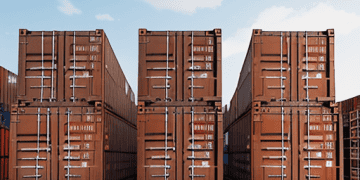President Donald Trump’s tariff policies have sparked discussions about their potential impact on U.S. manufacturing jobs. While some argue that tariffs will help bring jobs back to the country, others express concerns about their long-term effects on industries and supply chains.
During a recent statement, Trump asserted that tariffs are already influencing manufacturing decisions. “We already have numerous [factories] that are being built or starting to be built, and numerous that were being built in other countries, and they stopped, and they’re coming here now because of the tariffs,” he said.
According to the White House, 10,000 manufacturing jobs were added in Trump’s first full month in office, indicating a potential increase in employment.
Labor leaders have voiced support for measures that address trade imbalances. Shawn Fain, president of the United Auto Workers, highlighted long-standing concerns about job losses. “The working class in this nation has been hurting for decades because of unfair trade practices,” he said. “Since NAFTA’s inception, we’ve seen over 90,000 factories leave this nation.”
However, industry representatives caution against potential downsides. Kip Eideberg from the Association of Equipment Manufacturers argued that tariffs could have unintended consequences. “It is not going to create more jobs. It is not going to strengthen the U.S. manufacturing sector. It is going to do the opposite,” he said.
Eideberg emphasized the role of international trade partners, particularly Canada and Mexico, in maintaining supply chains. He warned that tariffs could increase production costs and lead to job losses. “Long-term we’re talking tens of thousands of jobs lost in the U.S. equipment manufacturing industry,” he added.
Experts note that the full impact of the tariffs remains uncertain due to ongoing policy adjustments. Jonathan Gruber, chair of the MIT Department of Economics, pointed to the shifting nature of trade policies as a factor in business decision-making. “Regardless of where the tariffs end up, the fact they’re moving around so much is going to lower hiring. Whether the tariffs end up raising or lowering hiring once they’re locked in, I think it is unclear,” he said.
Last week, Trump temporarily paused 25 percent tariffs on several Mexican and Canadian imports, including a one-month exemption for U.S. automakers.
March 12 is a key date, as tariffs on steel and aluminum are scheduled to take effect. While some business groups have urged the administration to reconsider, leaders in the steel industry continue to advocate for maintaining the tariffs to support domestic production.
Find the latest updates in supply chain logistics news at The Supply Chain Report. Visit ADAMftd.com for free international trade tools.
#TrumpsTariffs #ManufacturingJobs #TradePolicy #USChinaTrade #TariffDebate #EconomicImpact #SupplyChainShift















